Negotiating cross-border contracts can be quite the adventure, filled with unique challenges and opportunities. It's crucial to understand the nuances of different legal systems, cultural practices, and communication styles that can impact your negotiations. From ensuring compliance with local regulations to building trust with international partners, each aspect plays a vital role in successful outcomes. So, if you're eager to navigate this complex terrain with confidence, keep reading for tips and strategies that will make your negotiations smoother than ever!
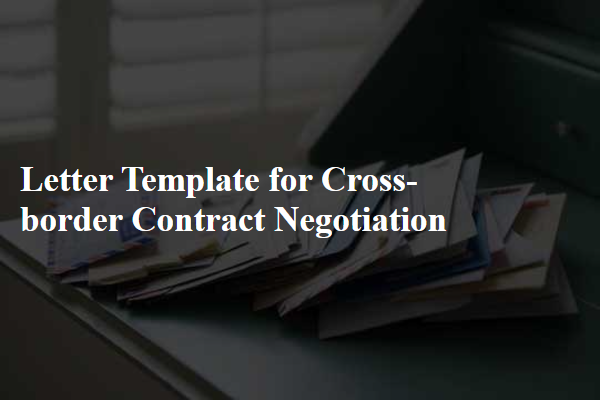
Clear Objectives
Clear objectives in cross-border contract negotiations are essential for successful outcomes. Defining specific goals, such as achieving favorable terms on pricing agreements, establishing delivery schedules, and securing intellectual property rights, lays the groundwork for effective discussions. Each party must outline their expectations, including compliance with international laws and regulations relevant to the industry, like the United Nations Convention on Contracts for the International Sale of Goods (CISG) or local trade agreements. Identifying potential risks, such as currency fluctuations and political instability in regions like Southeast Asia or Eastern Europe, informs strategies to mitigate these challenges. Clarity in objectives also facilitates better communication between negotiating parties, fostering trust and collaboration across cultural boundaries.
Legal Compliance
Cross-border contract negotiation requires meticulous attention to legal compliance, particularly when dealing with international regulations. Each country, such as the United States or Germany, has its own set of laws governing contracts, including the United Nations Convention on Contracts for the International Sale of Goods (CISG), which applies to cross-border transactions. Key compliance aspects include understanding different legal jurisdictions, adhering to local labor laws (such as minimum wage regulations in specific countries), and navigating tax obligations related to international trade and tariffs. Additionally, organizations must consider anti-bribery legislation (like the Foreign Corrupt Practices Act) to ensure ethical practices during negotiations. Engaging local legal experts familiar with the country's business landscape can mitigate risks and ensure that all contractual obligations align with applicable laws.
Cultural Sensitivity
Cultural sensitivity plays a crucial role in cross-border contract negotiation, particularly when parties from diverse backgrounds, such as Japan and the United States, engage in dialogue. Understanding each culture's negotiation style significantly impacts business relationships. For instance, Japanese negotiators often prioritize building trust and consensus, which can require multiple meetings to foster relationships before discussing contractual terms. In contrast, American negotiators may focus on efficiency and directness, seeking to finalize agreements swiftly. Awareness of concepts like the Japan's "Wa" (harmony) versus the US emphasis on individualism can help negotiators tailor their communication and approach. Recognizing non-verbal cues, such as body language differences, also enhances mutual understanding. Incorporating culturally relevant phrases or gestures can strengthen rapport and minimize misunderstandings, ultimately leading to successful contract agreements.
Risk Management
In cross-border contract negotiations, effective risk management is crucial to ensuring compliance with international regulations and safeguarding business interests. Identifying potential risks associated with currency fluctuations, trade barriers, and legal jurisdiction is essential for maintaining financial stability and operational continuity. Implementing risk mitigation strategies, such as hedging against exchange rate volatility or including dispute resolution clauses, can protect against unforeseen challenges in different markets, such as the EU or Asia-Pacific region. Additionally, thorough due diligence is required to assess the reliability of partners and local market conditions, which can significantly impact contract performance and compliance. Engaging legal experts familiar with local laws enhances the ability to navigate the complexities of international agreements, ensuring that the terms are clear and enforceable across borders.
Communication Protocols
In cross-border contract negotiations, effective communication protocols are essential for ensuring clarity and comprehension between parties from different jurisdictions. Timely responses to inquiries within 48 hours are crucial to maintaining momentum throughout the negotiation process. Utilizing platforms such as Zoom or Microsoft Teams can facilitate real-time discussions, allowing for a more dynamic exchange of ideas and concerns. Language considerations must be addressed, potentially involving professional translation services for legal documents. Moreover, establishing a designated point of contact on both sides (such as a legal advisor and a project manager) fosters streamlined communication and minimizes misunderstandings. Regular updates, at least bi-weekly, should be implemented to share progress and address any obstacles encountered during negotiations.
Letter Template For Cross-Border Contract Negotiation Samples
Letter template of cross-border contract negotiation for import/export agreements
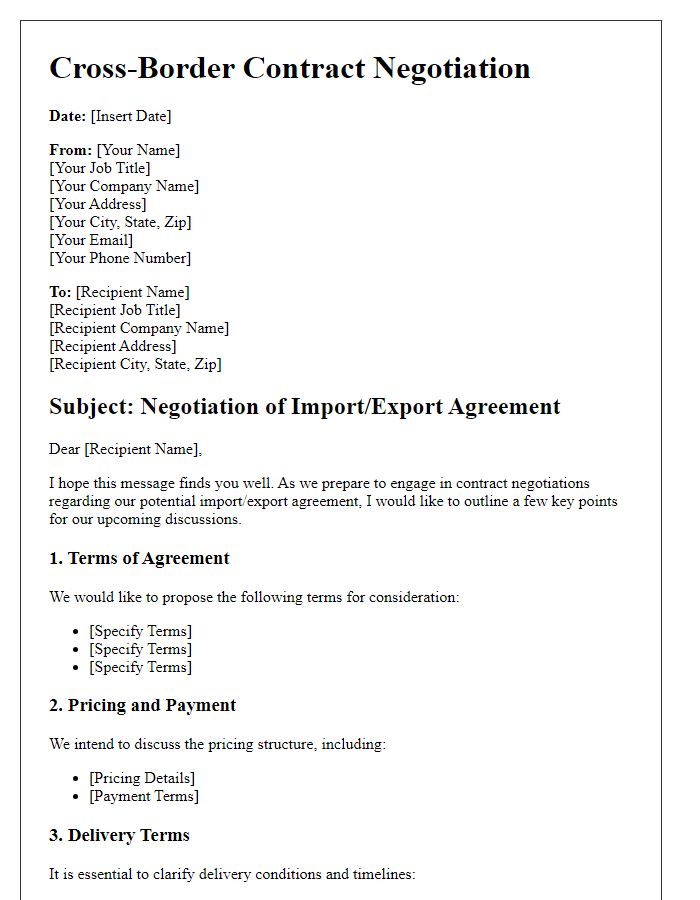
Letter template of cross-border contract negotiation for international partnerships
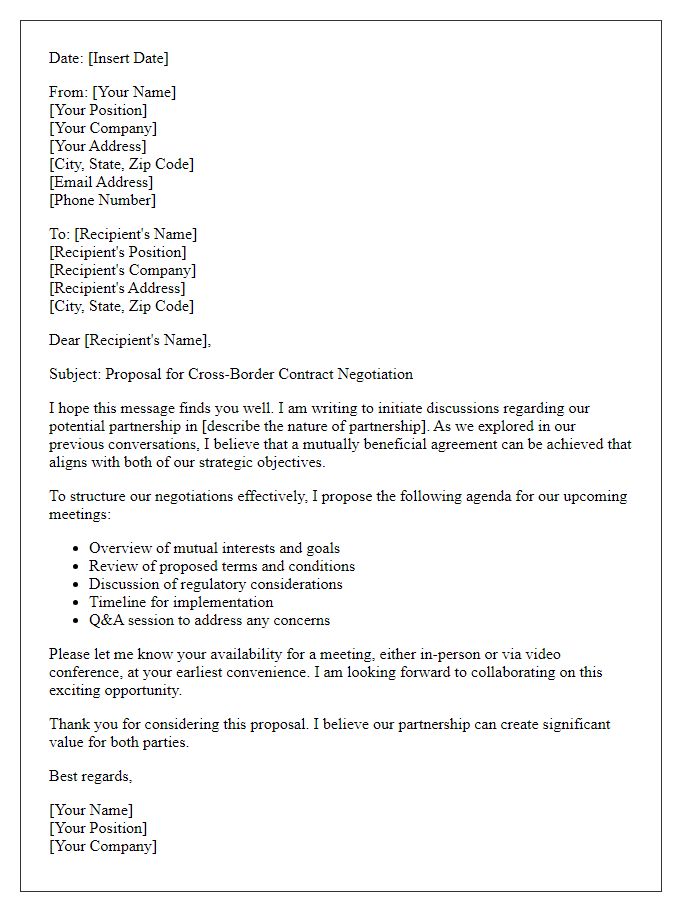
Letter template of cross-border contract negotiation for franchise agreements
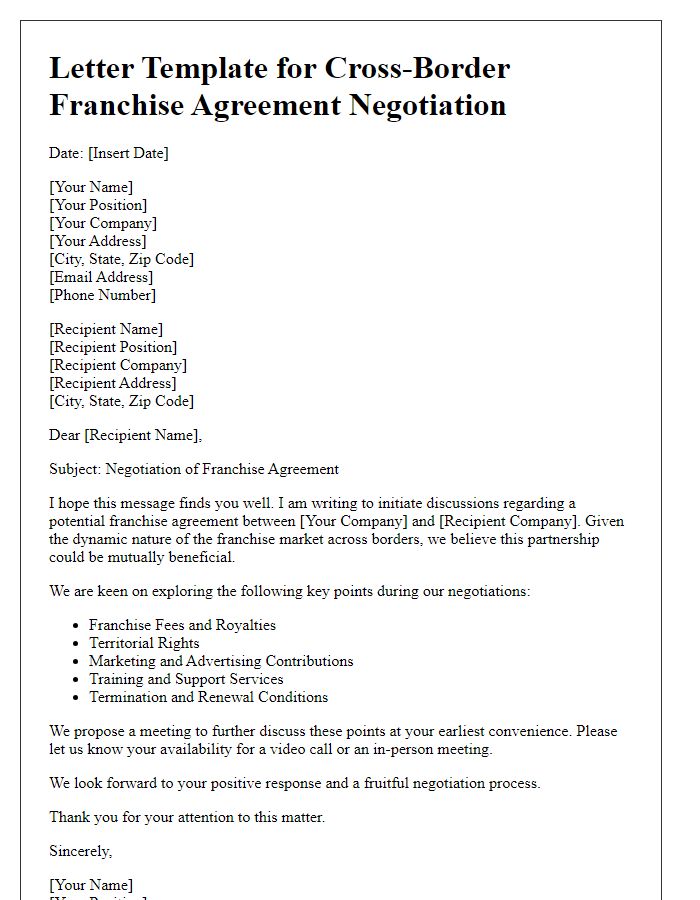
Letter template of cross-border contract negotiation for technology transfer
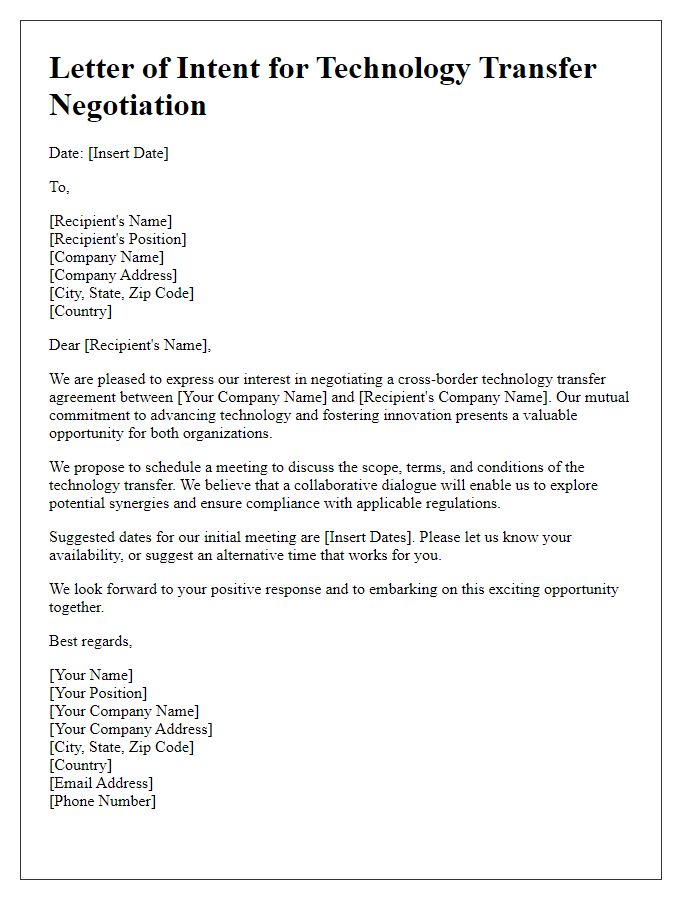
Letter template of cross-border contract negotiation for service agreements
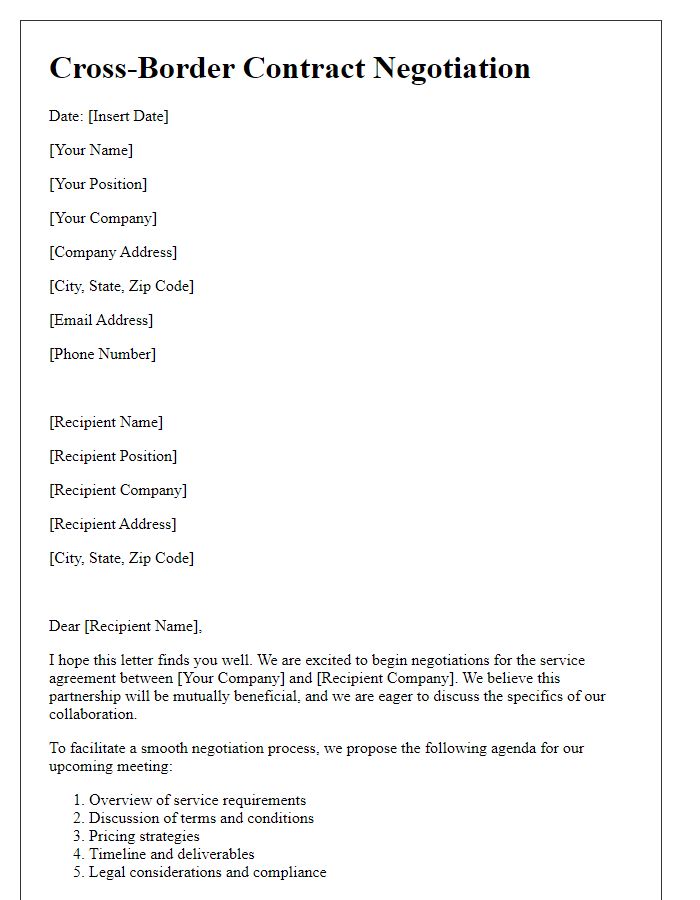
Letter template of cross-border contract negotiation for licensing deals
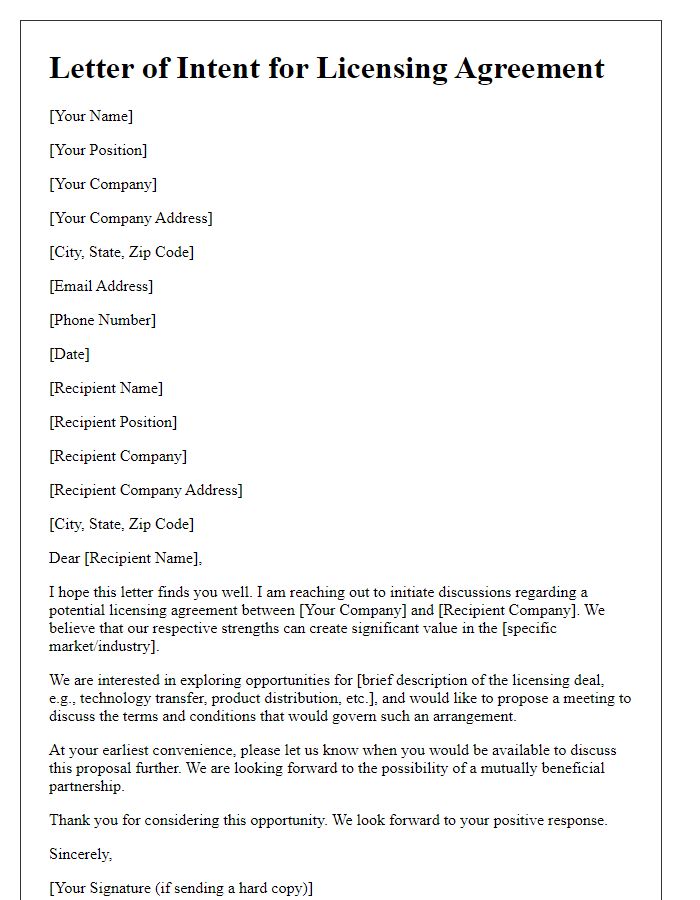
Letter template of cross-border contract negotiation for distribution contracts
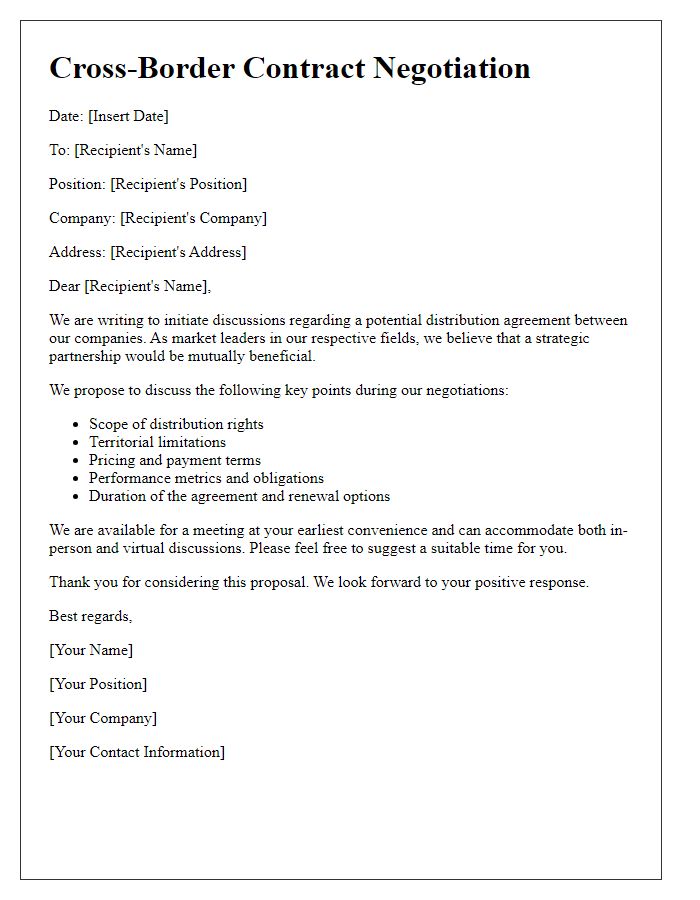
Letter template of cross-border contract negotiation for affiliate agreements
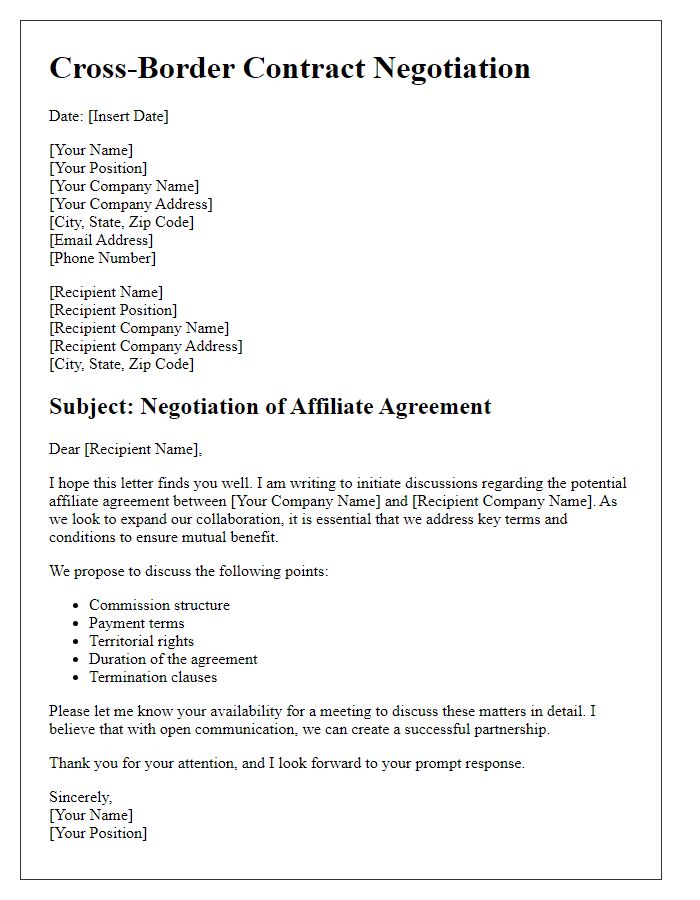

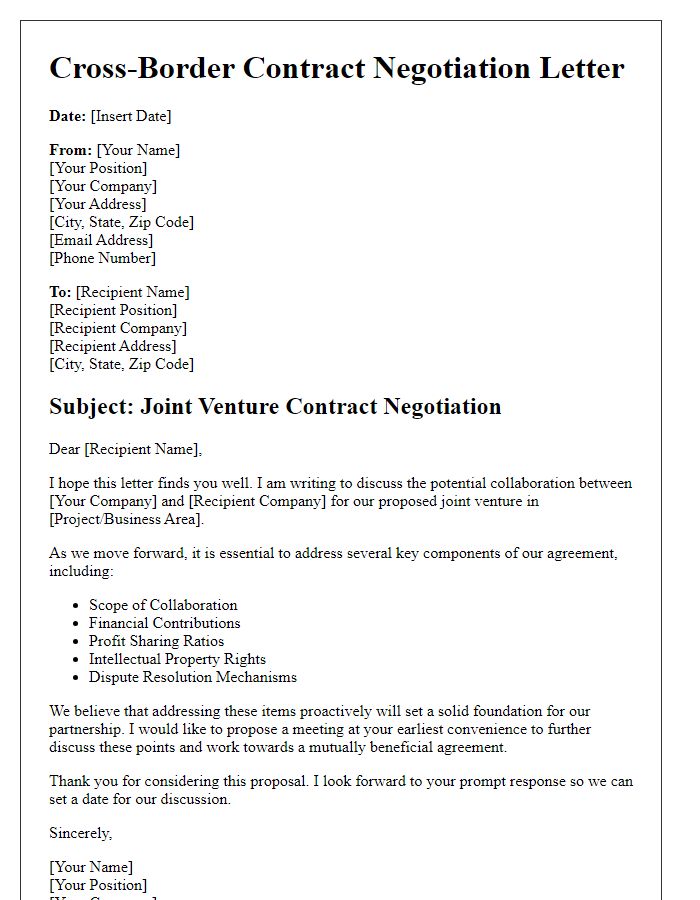
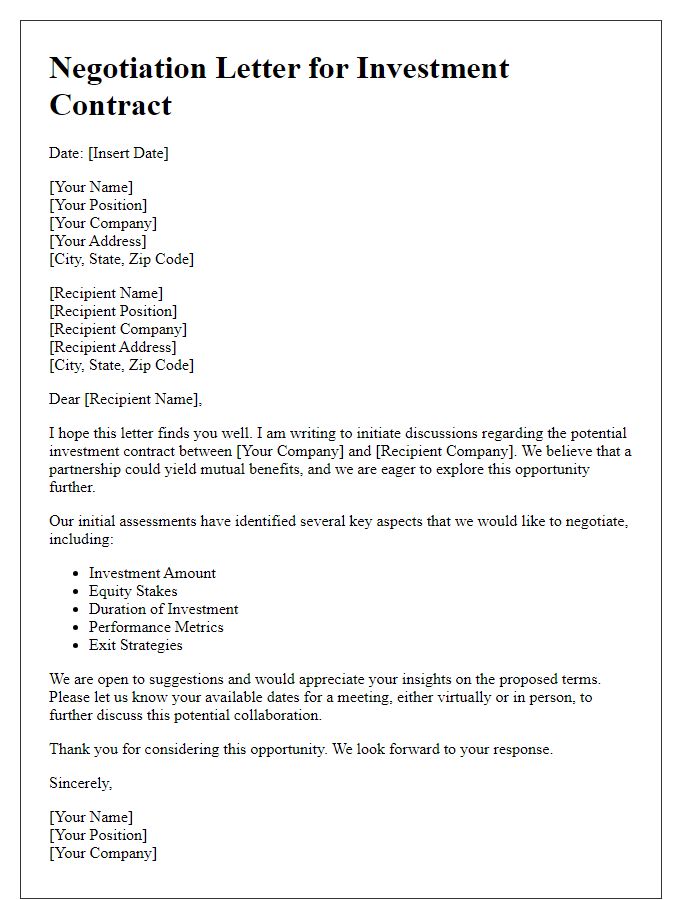


Comments